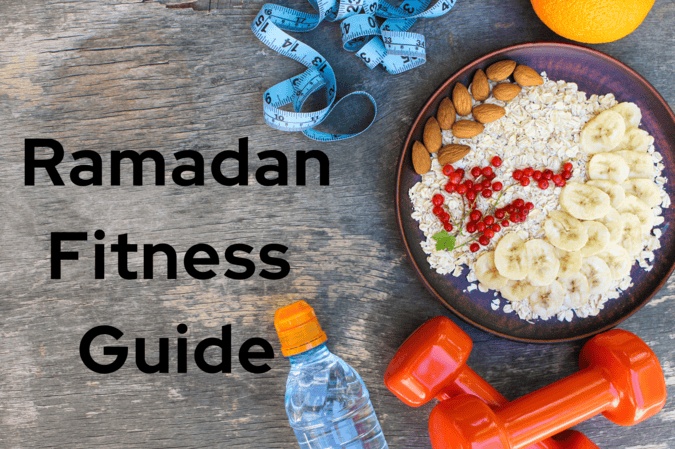The religious month of Ramadan embraces three important aspects which consist of fasting together with spiritual progress and mental contemplation.
In Ramadan many people stop their fitness activities because they fear their physical state will suffer from fatigue and dehydration and lack of energy.
Staying active during Ramadan leads to better energy levels together with improved metabolism and total wellness development.
The key is adjusting your workouts and nutrition to fit your fasting schedule.
Join “Shape & Spirit” this Ramadan! Experience expert guidance on workouts & nutrition to stay strong and energized while fasting. Discover smart fitness routines & wholesome meals for a healthy, active Ramadan. Balance faith, fitness, and food to feel your best throughout the holy month!
Why You Shouldn’t Skip Workouts During Ramadan

Preserves Muscle & Strength
The continuous lack of activity causes a deterioration of muscle strength. Even light exercises protect your muscle mass while maintaining strength levels.
Boosts Energy & Mental Clarity
Exercise drives blood circulation through the body which prevents lethargy and sustains mental clarity.
Enhances Metabolism
Fasting already decreases metabolism levels but exercise maintains proper energy levels and avoids negative effects on digestion.
Improves Mood & Well-Being
Maintaining a sense of equanimity together with reducing emotional stress becomes possible due to exercise which stimulates endorphin production.
Best Times to Work Out During Ramadan

Timing is everything when exercising while fasting. Here are the most effective workout windows:
Before Suhoor (Pre-Dawn):
Before the morning meal of Suhoor is the period where one should perform stretching exercises and yoga along with light walks for workouts. Exercising at this time promotes the activation of bodily functions for the upcoming daytime period.
Before Iftar (Pre-Sunset):
The best period for physical exercise occurs before sunset since you can perform bodyweight exercises along with walking or light aerobic activities. Exercising during high dehydration periods should be avoided because of increased risks.
After Iftar (1-2 Hours Later):
The best time for moderate-to-intense workouts like strength training or HIIT. Your body is refueled and hydrated.
How to Adjust Your Workouts for Ramadan

Lower the Intensity
You should reduce workout intensity by using bodyweight activities and resistance bands and moderate weights instead of heavier loads and vigorous fitness routines.
Focus on Low-Impact Workouts
Walking, yoga, pilates and stretching form ideal exercises for maintaining flexibility without causing excessive strain on your body.
Keep Workouts Short & Effective
Aim for 30-45 minutes of movement instead of long, exhausting sessions.
Prioritize Recovery
You should obtain 6-8 hours of restful sleep and schedule rest days in order to stop burnout from occurring.
Smart Nutrition Tips for Ramadan Fitness

Protein is Key
The essential role of protein in maintaining muscle strength demands the inclusion of lean proteins including chicken eggs fish tofu as well as lentils.
Healthy Fats for Energy
Healthy fats during iftar work as energy boosters since they include nuts avocado olive oil and seeds as recommended sources.
Choose Complex Carbs
People should select complex carbohydrates from brown rice, oats and quinoa and whole wheat products because they offer continuous energy supply from morning until night.
Avoid Sugary & Fried Foods
You should stay away from foods containing sugar or deep oil which leads to energy drops while creating bloating effects along with tiredness. Stick to whole, nutrient-dense meals.
Stay Hydrated
Drink at least 8-10 glasses of water starting from between suhoor and iftar to prevent dehydration.
Final Tips for Ramadan Fitness Success
Drink Enough Water – Aim for 8-10 glasses between iftar and suhoor
Modify Workouts – Reduce intensity, but don’t stop moving
Sleep Well – Get 6-8 hours to recover properly
Eat Smart – Balance protein, complex carbs, and healthy fats
Individuals can successfully practice physical activity throughout Ramadan which delivers advantages for their physical and mental state.
By planning your workouts and meals strategically, you can stay fit, strong, and energized throughout Ramadan!
This Ramadan don’t pause your progress—adapt and keep moving forward!
You may also want to see our beginners guide on How to Start Your Fitness Journey (Beginners Guide), How to Set Realistic Fitness Goals and Achieve Them.
We hope that this article helped you learn Ramadan Fitness Guide: Stay Strong, Energized & Healthy While Fasting. You can follow us on Facebook and Instagram for more helpful content.

